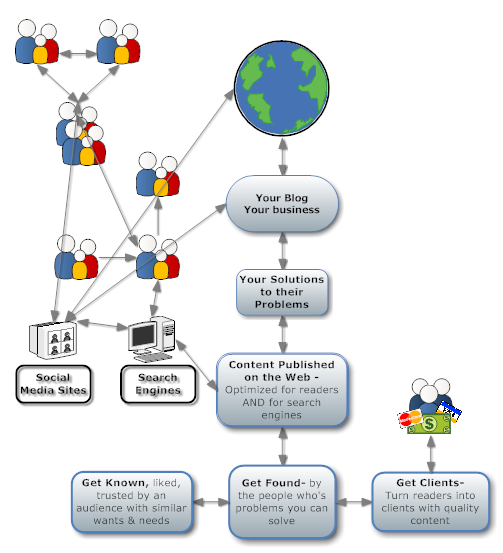 How can you appeal to readers’ emotions on a business-oriented site? Online persuasion works best when you appeal to both the logical and emotional centers in the brain.
How can you appeal to readers’ emotions on a business-oriented site? Online persuasion works best when you appeal to both the logical and emotional centers in the brain.
If you want to write content that persuades readers to take action, you write about emotional triggers AND provide reasons to act.
Many online content marketers misunderstand what it means to “appeal to emotions.” How exactly do you bypass the conscious thinking brain and instantly connect with readers’ emotional centers, out of their conscious awareness?
It’s easier than you might think. Stephen Denning writes about this in his book The Secret Language of Leadership, and these lessons for leadership communications are applicable to writing web content.
Here’s a diagram of how many business professionals traditionally write content when they want to persuade people to take action:
The traditional communication approach follows this sequence:
Define the problem ► Analyze it ►Recommend a solution
Effective content marketers, however, follow a unique, almost hidden pattern:
Grab the audience’s attention ► Stimulate desire ► Reinforce with reasons
When language follows this sequence, it can inspire enduring enthusiasm for a cause and spark action. Read More→










